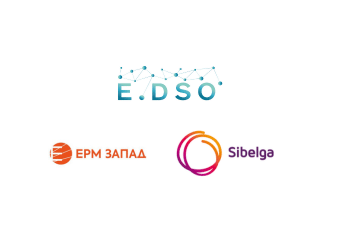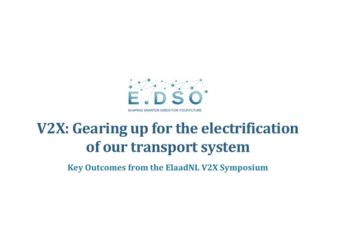Clean Energy for All. Package emphasises customers’ engagement, more flexible network management and DSO needs
EDSO for Smart Grids welcomes the prominent focus given in today’s package to customers’ participation, security of supply, flexibility and distribution system needs as a much-needed step-change for redesigning Europe’s electricity markets. However, DSOs will only be able to thrive on these new tasks if regulatory frameworks will create the necessary conditions that would enable them to adapt to the new market realities.
EDSO commends the draft legislation’s recognition to incentivise DSOs to procure flexibility services from distributed generation, demand response or storage, most of which are connected or deployed at the distribution level. Moreover, we welcome the proposal’s emphasis that DSOs will play an increasing role as neutral and active market facilitators, and enablers of new services, but we would also like to signal certain risks when trying to define fixed rules to ensure the transition towards market parties.
Most importantly, we see a clear opportunity missed for storage, as the proposal fails to recognise the needs of DSOs to build and use storage as an innovative network management tool that can help solve local distribution issues. DSOs should not be forced into buying storage services as offered by market parties alone, but also be granted the right to fulfil their needs themselves. As for electro-mobility, regardless of the chosen solution at the national level, DSOs must always take part in the planning and the development of public charging infrastructure, which is needed to avoid or delay costly grid upgrades.
As pointed out in the package, DSOs must comply with stricter rules in their new role as neutral market facilitators. But rules must also guarantee that DSOs are given appropriate incentives based on their performance and compliance to the new roles. The shift to have at least a 27% share of renewables by 2030 reinforces this view, as more variable and unpredictable generation will be connected to Europe’s distribution grids. To meet this target in the most cost-efficient way, local networks will require a more active system management. Smart grids are needed more than ever to deliver on the EU’s Energy Union, alongside a renewed focus on innovation as a centrepiece of the market design reform.
Regulatory frameworks should leave sufficient scope for DSOs to design network tariffs that can enable a more efficient and participative customer behaviour. Two preconditions will be needed for a successful implementation of time-differentiated distribution tariffs. One is that smart meters must be installed and communicating in advance. The other is that distribution and retail tariffs must be aligned, otherwise they risk in becoming ineffective.
‘One of the most prominent aspects of the market design legislation is the inclusion of the much-awaited EU DSO entity that is expected to give DSOs enhanced visibility, responsibility and coordination at EU level on electricity matters,’ said Roberto Zangrandi, Special Adviser for EDSO. ‘We do welcome the Commission’s initiative to give the new body a formal place and task it with the preparation of network codes that could address system management fundamental to ensure security of service and supply at all levels – even at the local one.’







